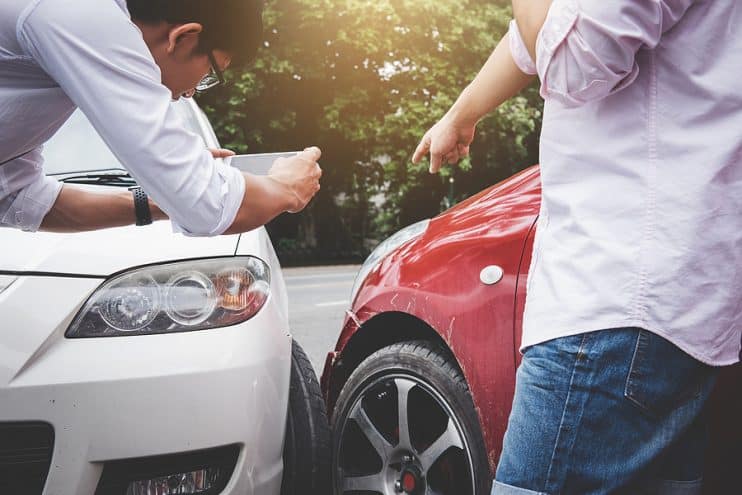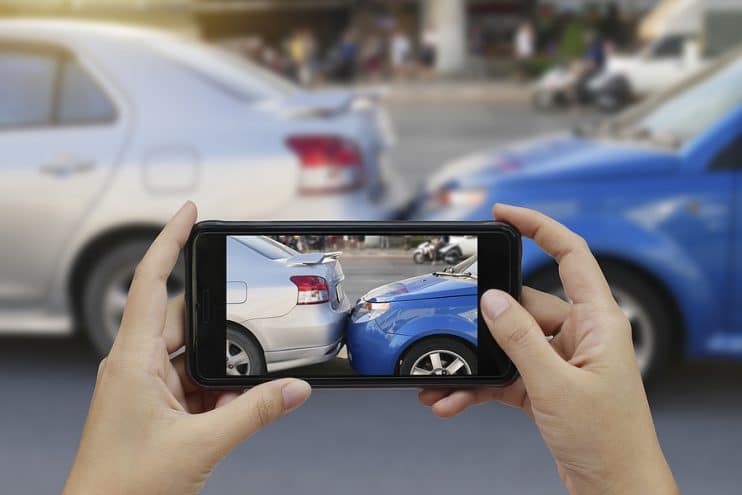
Not only is this practice a little distasteful ethically, it’s downright dangerous. And apparently it’s having a real impact on the auto insurance industry. On average your premium is £50 per year higher due to highly organised criminal gangs who’re working these cons to acquire huge amounts of cash in false claims.However it looks like the internet could once again come to the rescue. Social networks like Facebook and LinkedIn could help identify participants in these gangs. Often it will be the same six or so people who are acting in these frauds taking turns to play various roles like bystander, passenger and driver. The popular news site Bobsguide explores how this could work in a recent article.
As one of the certain things that always happens after a crash is that you walk away with the other party’s details, you can always look them up on Facebook. A quick glance through their friends list could help identify any witnesses who claimed to be strangers, but were in fact accomplices of the nefarious driver.
However any crook with their wits about them could circumvent such enquiries by simply playing around with their privacy settings to stop you looking through their friends list.
So what’s next?
Bobsguide explores how this scheme could be potentially taken one step further. If insurance companies had access to Facebook data then they could quickly identify relationships between witnesses, passengers and drivers. This kind of search could also be trialed on LinkedIn as participants in the fraud may work together in the same auto-shop, solicitor or hire organisation.
With more phones and apps now requiring you to link up to these networks and auto-add functions inviting cross-network recruitment, whilst privacy is easy to achieve, completely hiding your social connections from technology is increasingly difficult.
Technology could even automate the detection of relationships between members of fraud gangs, helping generate real lines of enquiry for police and saving millions in insurance pay-outs and public money to fund investigations.
Yet again however the co-operation of the social networks is a crucial factor in making such an idea work, and with recent rejections of public sharing laws around software like WhatsApp, it seems unlikely that these platforms are going to open up to governmental agencies.
Until then what can you do?
If you’re unfortunate enough to be involved in an accident, then you’re bound to feel shaken up and impacted by shock. Even though you might not be thinking straight, try to remain vigilant and aware of anything that seems suspicious.
Whatever kind of accident you may be involved in, your primary concern should be safety – both your own and that of other road users. Once this has been ascertained then try to move the affected vehicles off the road. Turn on hazard lights and if necessary contact the emergency services.
Next try to consider the following steps that could help you avoid fraud:
- Exchange details with the other party
- Don’t admit any fault at the scene of the accident
- Try to identify your own witnesses and take their details
- Take picture of the scene on your phone’s camera
- Consider investing in a dash cam – these are surprisingly cheap
Call the police if there is any sign of threat or intimidation
As you’d expect the insurance industry isn’t taking this type of behaviour lying down either. A September 2012 report from the Association of British Insurers indicates that one fraud is exposed every four minutes in the UK.
The Insurance Fraud Bureau has access to over 130 million cross-industry insurance records and uses cutting-edge technology to detect scams.
However public support can certainly assist and the insurance industry is asking that anyone with a suspicion or information about Crash for Cash scams call their free and confidential Cheatline on 0800 422 0421.















.png)